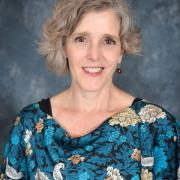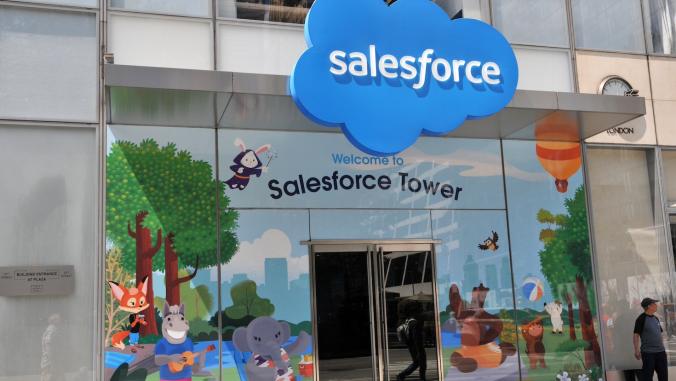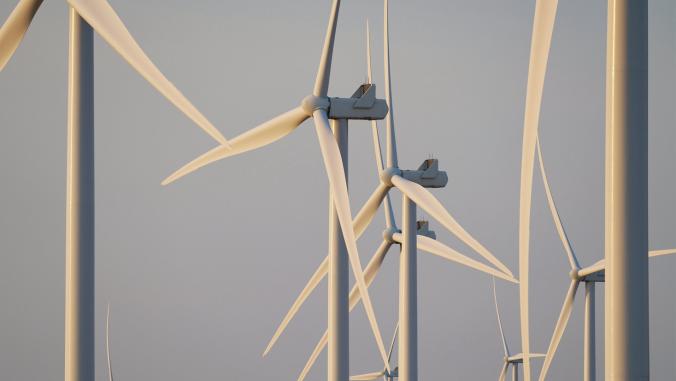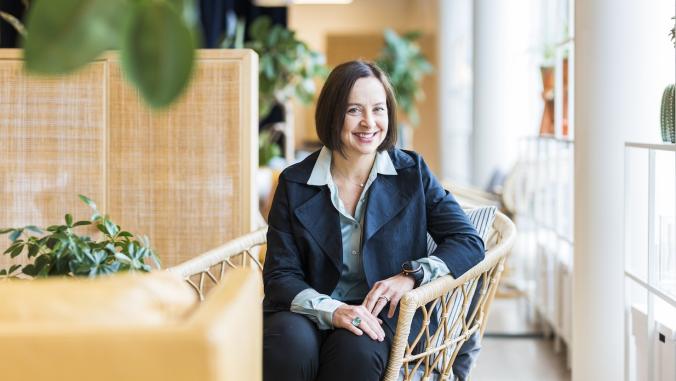How She Leads: Kathleen Rogers, Earth Day Network
Trained as a lawyer, this "pathological optimist" is turning Earth Day activism into year-round programs. Her mission: bring diversity into the environmental movement.

How She Leads is a regular GreenBiz feature spotlighting the career paths of women with influential roles in sustainable business. In this edition, GreenBiz Senior Writer Heather Clancy chats with Kathleen Rogers, the former environmental attorney who has led Earth Day Network since 2001.
Here’s a bit of trivia for those of you younger than 40. Earth Day, celebrated each April 22, is older than the Clean Air Act, Clean Water Act or the Endangered Species Act. Technically, it is also the single-largest 24-hour period devoted to civic activism in the world. This year, events that day and the days leading up to it will touch an estimated 1 billion people around the globe.
Tens of thousands of people came to the Earth Day 2015 event Saturday in Washington, D.C., where speakers exhorting people to action included United Nations Secretary-General Ban Ki-moon.
The success of the “day” dreamed up by Wisconsin senator Gaylord Nelson and coordinated by the legendary Denis Hayes actually understates the year-round impact of the group behind the day, Earth Day Network. As it approaches its 45th anniversary, the network sees itself mostly as coalition builder put on earth to help specific causes reach their goals.
One example is the Green Schools Campaign, run in partnership with The Clinton Foundation and the U.S. Green Building Council. The goal is twofold: promote healthier learning environments (through energy efficiency and attention to reduce toxic materials in classrooms) and embedding environmental knowledge into curriculum.
A newer initiative is Women and the Green Economy, dedicated to championing female leaders around the world who are shaping green economic and investment policies.
The woman steering its priorities, attorney and advocate Kathleen Rogers, describes her staff’s mission: “Our goal is not to grow ourselves as much as it is to build capacity, give power to local groups and build an indigenous interest and affinity.”
On the eve of Earth Day 2015, Rogers shared her views on engaging low-income communities, why green schools remain a top-of-mind agenda and why environmental advocates need to remain “pathological optimists.” The interview was edited for length and clarity.
Heather Clancy: What do you consider your biggest accomplishment since you joined in 2001?
Kathleen Rogers: My personal background and interest was working on and broadening the environmental movement — which, as you know, is increasingly old and white. So, my goal as a human being and for the organization — and the board adopted this — was to take on a lens for low-income [communities] and of work with demographics other than those.
My partners will be not necessarily from the environmental community, although they can be. For the most part, they are groups that aren't involved in the environment at all. That's how we became partners with the NAACP and hundreds of Latino organizations. Our goal and our mission is to broaden, diversify, educate and activate the environmental movement.
We are the largest environmental movement in the world because of Earth Day, and so we're also the biggest recruiter to the movement. We're bringing more and more people into the movement than the top 30 environmental groups. Whether they have a bigger budget than us or not is irrelevant. They might have a legislative agenda that's different than our own. That's our mission, to broaden the movement. I brought that idea in. …
That's the No. 1 thing I'm proudest of. I also am proud of having really increased visibility and the power of Earth Day worldwide. In the United States, I find the only people bored with Earth Day are those who've been around a long time and lived through the first Earth Day. They don’t view it as a powerful institution. But for us, it's a day of reckoning everywhere.
Clancy: Why is the green schools campaign so important?
Rogers: Being in K-12 schools has been central to our mission. It's building generations of kids who know what they're talking about, and it's taken us 30 years to start really digging in [with curriculum]. The other half of the equation for Earth Day Network is that we really care about green schools. The data is fantastic, and it's coming in from Japan, Norway, Finland — all over the world. Data that shows when you put kids in healthy green schools — meaning good indoor air quality, good lighting, good food — you see remarkable differences in the kids.
You'll see kids that are more optimistic. That is so badly needed in our low-income community schools where we work. We see them eating healthier foods. We have higher test scores. We have higher teacher retention, fewer sick days. The list of benefits of green schools goes on and on and on. And every kid deserves to be in a green school. …
It really bothers me that we don't have equality in our buildings, our textbooks, our teachers. It's really about equality. And environment is a huge part of that.
We're working on very cool things — something called the Community Reinvestment Act and some other financing mechanisms — so that if you green a school, the energy savings stay with the school. It could be $45,000 a year. It could be $100,000 a year. That money stays with the school to hire new teachers, get new science equipment. That really makes a difference.
Clancy: What your most pressing concern right now and how are you tackling it?
Rogers: There are practical things. You always have to fundraise. You always have to have good staff. You always have to have imagination. You have to work harder and harder and harder. Americans are famous for this, but I think environmentalists are particularly famous for this. We just work really hard and there's this never-ending — never, ever, ever ending — set of problems that we face every day: more insults to our intelligence and to the natural world. That’s the institutional problem. Maybe this wasn't your question, but as a woman leader, I can tell you, you just have to work really hard. …
We'll start planning for the 46th anniversary of Earth Day [right after this year’s event is over]. We'll be back trying to figure out the theme and how we can reach more people and [asking ourselves] where were we successful, where we weren't. Working in China is always hard, but we've had a lot of success. So, how can we do better and reach more rural areas? We analyze almost every country we're in to make sure we're doing a better job. That takes a lot of research and work. But if our goal is to be the biggest recruiter in the world, then we have to work at it year round. I think for us, climate change is everybody's biggest problem. In fact, it’s just about everybody's biggest problem.
Clancy: Who has been your most inspirational mentor?
Rogers: Truthfully, Denis [Hayes]. He is one of those people who never raises his voice. He's incredibly supportive. … He has faith in me. He listens and makes really great suggestions. He's easy to get along with. He's a totally great boss.
Clancy: What advice would you give to someone who thinks, “Wow. I really want to do this”?
Rogers: I always beat myself up for not being a great mentor. This will sound really stupid, but about two years ago, a woman ran up to me, I had no idea who she was. She was one of maybe 50 interns. For some reason, I'd spent some time talking to her. She told me, “You completely changed my life. Thank you so much. Blah, blah, blah.” I was really busy and I said, “Oh, you're welcome.” Constantly, I wish I could go back and grab her to ask her, “What did I do that was right so I can do it more?”
Being a good mentor — and maybe that's a stupid word because I'm not really sure what it means — but having a good boss is really critical. Someone who lets you do stuff, who always has your back, who never, ever blames stuff on you. I think I'm that way. I never blame my staff for anything. It doesn't matter how bad [something] is, it's my fault. You have to have a boss like that if you want to help people be brave in their jobs.





